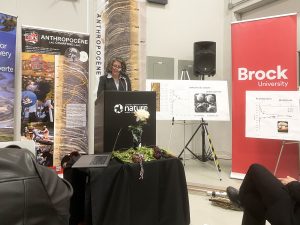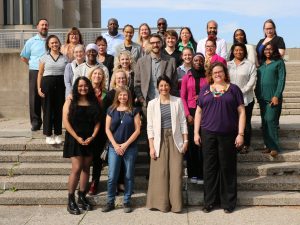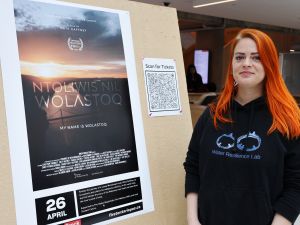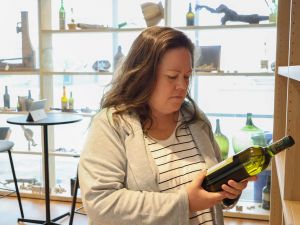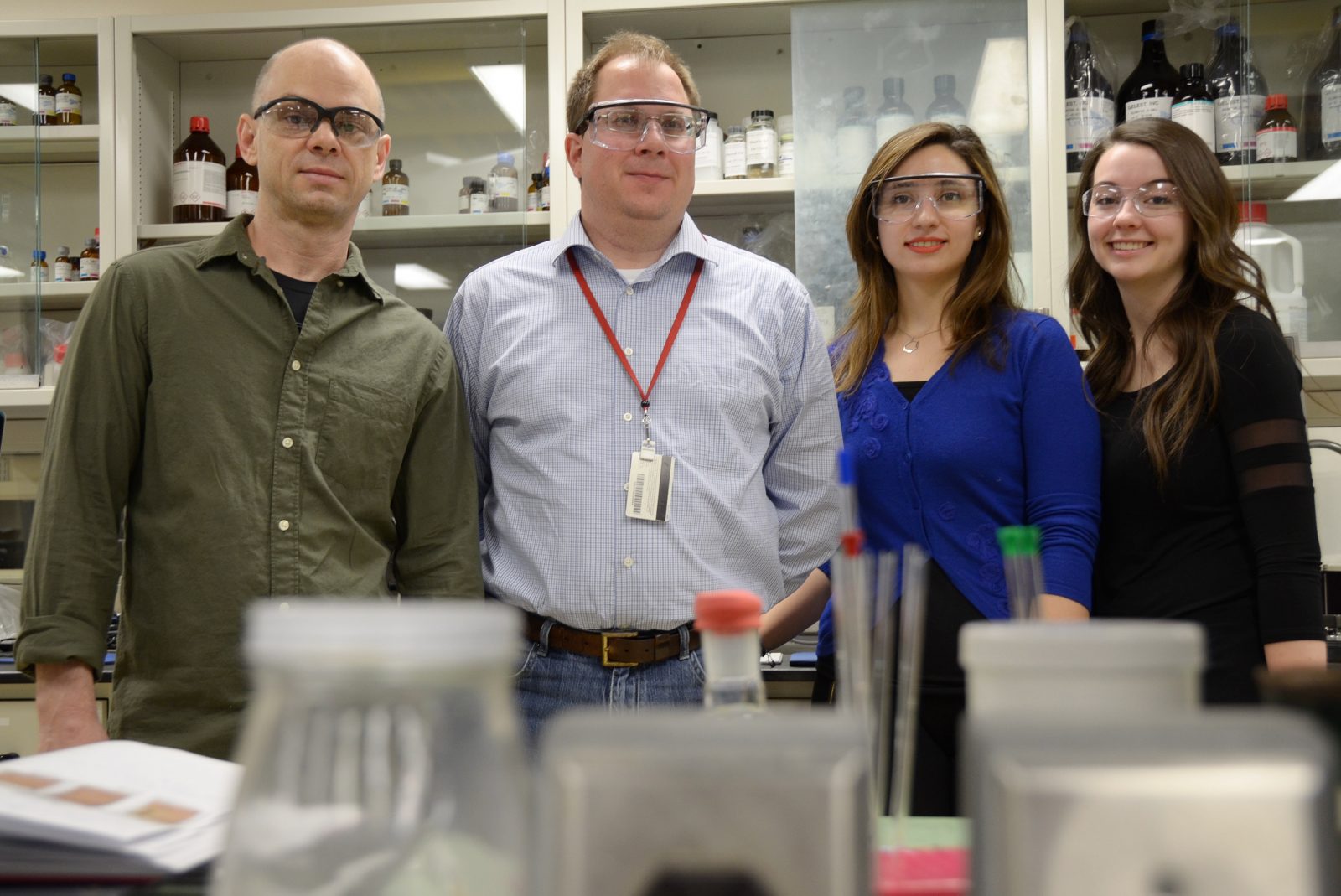 From left, post-doctoral researcher Mark Frampton, Brock chemistry instructor Paul Zelisko, graduate student Paria Azadinamin and undergraduate student Kelly Duggan, who are working on a collaborative research project with a Canadian company CSL Silicones.
From left, post-doctoral researcher Mark Frampton, Brock chemistry instructor Paul Zelisko, graduate student Paria Azadinamin and undergraduate student Kelly Duggan, who are working on a collaborative research project with a Canadian company CSL Silicones.A Guelph-based company making products that protect buildings and equipment from environmental damage has partnered with a Brock University chemist to refine critical steps in the manufacturing process.
Chemistry instructor Paul Zelisko and CSL Silicones Inc. are working together to improve a chemical method involved in the production of the company’s proprietary silicone polymers used to manufacture products that insulate high-voltage insulators.
Polymers — large molecules with repeating subunits — are created through a process called polymerization. The polymerization of silicones needs a substance called an “initiator” to bring about the chemical formation of long chain species. However, the initiator often creates salts and other by-products that can decrease the quality of the finished silicone polymer.
“We’re working with this company to help them advance understanding of how these reactions may work to a commercial advantage,” says Zelisko. “We’re looking at what kind of initiators and neutralizers can be used in these reactions, what the alternatives might be, determining what happens to that initiator in the system, and how the initiator and any salts can be removed from the reaction system.”
Zelisko’s research team at Brock includes a postdoc and four undergraduate and graduate students.
“We are truly pleased and privileged to have two senior PhD level researchers and the laboratory manager from the partnering company who are coaching, mentoring and engaging students in this project,” he says.
The Brock team is using specialized equipment and testing methods found within Brock labs, including matrix-assisted laser desorption ionization time-of-flight mass spectrometry, viscometry, a durometer, contact angle micrometer and nuclear magnetic resonance spectroscopy.
“The eventual and most significant objective is to develop an initiator that doesn’t create any by-products such as salt or won’t negatively affect the final product if not filtered out,” says CSL Silicones Senior Scientific Researcher Farooq Ahmed.
“The industrial research benefit of working along with Dr. Zelisko and his students is truly inspiring, as the limits of their applied science developments are boundary-less,” Ahmed says.
CSL Silicones Vice-President of Operations Chris McConnery says the research will greatly benefit the company.
“It’s a most significant operational cost advantage not having to strip and then filter very, very fine particulates, where shelf life of your end product is dependent on how well you can make it stable by removing by-product in the reaction process,” he says.
Zelisko began working with CSL Silicones nearly four years ago on a project funded by an Engage Grant from the Natural Sciences and Engineering Research Council of Canada and VIP I grant from the Ontario Centres of Excellence.
Successes from that first project laid the groundwork for the current research, which began in the fall and was funded in part by Ontario Centres of Excellence, along with CSL as its industry partner.
“It’s an exciting partnership,” says Zelisko. “They’re a wholly-owned Canadian company committed to scientific and applied research, working collaboratively with academia to improve their products, while satisfying their global client’s application needs.”
The partnership is expected to create two Brock University student co-op positions in manufacturing and scientific research.
